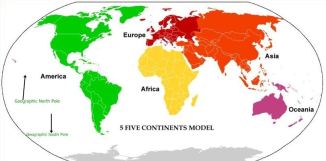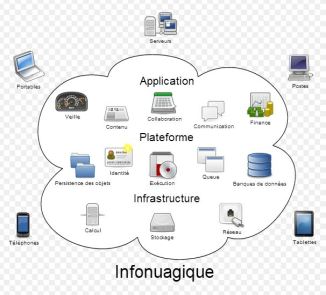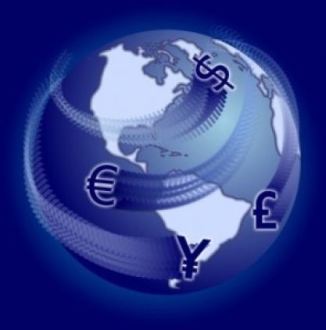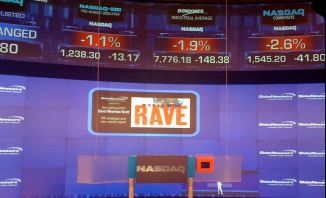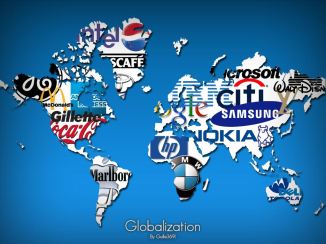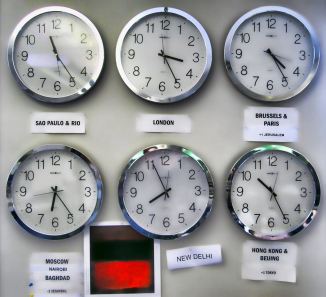
Documents en français
Arès, Mathieu et Eric Boulanger. L’investissement et la nouvelle économie mondiale : trajectoires nationales, réseaux mondiaux et normes internationales, 2012. Web. [page consultée le 21 janvier 2014]
Ouvrage complet qui traite de la non-uniformité des politiques et des règles d’investissement dans la mondialisation et la nouvelle économie. Les auteurs examinent plusieurs aspects qui font partie de la réalité de la mondialisation et de la nouvelle économie : le rapport entre l’État et les entreprises, et le rôle de l’État comme protecteur des intérêts économiques nationaux.
Bialès, Christian. « La nouvelle économie en questions » (2013). Montpellier, France. URL : http://christian-biales.net/documents/Nouvelleeconomie.pdf [page consultée le 26 janvier 2014]
Travail qui examine les différents aspects de la nouvelle économie. L’auteur met en question la nouvelle économie, en analysant les fluctuations boursières créées par les nouvelles technologies de l’information et de la communication (NTIC) aux États-Unis.
Djerrahian, Gabriella et Normand Labrie. « La reconfiguration linguistique dans une entreprise canadienne à l’ère de la mondialisation » Francophonies d’Amerique, no. 27, 2009, p. 105 129. URL : http://id.erudit.org/iderudit/039826ar [page consultée le 20 janvier 2014]
Article intéressant qui analyse l’impact de la nouvelle économie sur les pratiques de travail et les pratiques langagières. Les chercheurs examinent la façon dont se déroule la gestion du pluralisme linguistique dans une entreprise particulière dans le contexte de la mondialisation, de la nouvelle économie et du néolibéralisme.
Polèse, Mario. « Montréal doit profiter de la nouvelle importance des centres-villes ». Le Devoir, 8 octobre 2013. URL : http://www.ledevoir.com/politique/montreal/389408/montreal- doit-profiter-de-la-nouvelle-importance-des-centres-villes [page consultée le 24 janvier 2014]
Dans cet article, l’auteur compare certaines villes aux États Unis qui ont profité de la nouvelle économie en attirant plusieurs entreprises œuvrant dans le domaine des nouvelles technologies de l’information (NTI). Cette perspective peut présenter des leçons pour l’avenir économique de Montréal.
Teulon, Frédéric. La nouvelle économie mondiale. Presses Universitaires de France, 2008. URL : http://www.amazon.fr/Nouvelle-%C3%A9conomie-mondiale-Fr%C3%A9d%C3%A9ric- Teulon/dp/2130525296 [page consultée le 20 janvier 2014]
L’auteur fait un rappel historique de l’économie mondiale tout en passant de la découverte du continent américain à la révolution industrielle, la Seconde Guerre mondiale et le progrès technique dans le domaine des communications, phénomène qui a accéléré la mondialisation.

Sources in English
Florida, Richard. “The Boom Towns and Ghost Towns of the New Economy.” The Atlantic. 18 Sept. 2013. Web. 20 Jan. 2014. URL: http://www.theatlantic.com/magazine/archive/2013/10/the-boom-towns-and-ghost-towns- of-the-new-economy/309460/
The author analyses thoroughly the aftermath of the 2009 financial crash in the United States. He makes a comparison between several cities in the United States: those who have diversified their economy towards high technology have experienced rapid economic growth, whereas those who have maintained their ties to the old economy have continued to decline.
Lazonick, William. “The New Economy Business Model and the Crisis of U.S. Capitalism.” Capitalism and Society, Volume 4, Issue 2, 2009. Web. 24 Jan. 2014.
The author makes a deep analysis of the effect of the new economy in the United States. While the information and communication technology industry has transformed and developed society, there are many high-tech labor issues that are often disregarded, such as demand for younger workers and workers from developing nations to employ them at lower wages.
Lundvall, Bengt-Ake. “Why the New Economy is a Learning Economy.” Techno-Economic Paradigms: Essays in Honour of Carlota Perez, Ed. by Wolfgang Dreschsler, Rainer Kattel and Erik S. Reiner. New York: Anthem Press, 2009. Web. 24 Jan. 2014.
Interesting article that provides a definition of the new economy and analyzes many issues of information and communications technology (ICT) in the context of the world financial crisis. The author presents a skeptical light about the new economy, while bringing up statistical analysis of Europe and the United States.
“New Economy.” Investopedia. Web. 20 Jan. 2014. URL: http://www.investopedia.com/terms/n/neweconomy.asp
Investopedia is a leading website that contains relevant information on financial terminology as well as published articles on financial markets, investment, and an array of educational material on micro and macroeconomics. Clear and concise definitions help understand an array of terms that may otherwise prove difficult for the layman.
Pupo, Norene and Mark Thomas. Interrogating the New Economy: Restructuring Work in the 21st Century. Toronto: University of Toronto Press, 2009. Web. 24 Jan. 2014.
This book consists of a collection of essays that focuses on the emergence of the new economy and its impact on workers and their communities within Canada, as well as the reshaping of management tendencies in both the private and public sector.


